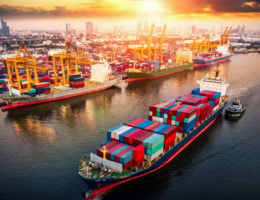On 25 May 2023, the Notification of the Ministry of Finance on Duty Exemption for Parts of Electric Vehicle or Battery-powered Electric Boats was published in the Royal Gazette. This Notification is to further promote the domestic production of electric vehicles (EV) in Thailand as well as to develop and strengthen the domestic EV supply chain. The Notification became effective on 26 May 2023.
Amidst the increased focus globally on respecting and protecting human rights, in a recent seminar organized in Thailand, the special advisor to the Prime Minister of Japan responsible for international human rights matters announced the adoption of the Guidelines on Respect for Human Rights in Responsible Supply Chains by the Government of Japan.
From 2026, pure battery electric vehicles (BEVs) must be equipped with certain levels of advanced driver-assistance systems (ADAS); otherwise, excise tax rates will be higher. The Royal Gazette has published several notifications of the Excise Department regarding BEVs recently. The Notifications have introduced the ADAS requirements as a new condition to apply lower excise tax rates on BEVs along with detailed requirements on the use of domestically manufactured batteries.
The year 2022 marks a noteworthy year for a quantum leap in Thailand’s electric vehicle market. Against the backdrop of Thailand’s commitment to carbon neutrality and net-zero greenhouse gas emissions at COP26, combined with the unexpected uncertainty in oil and gas prices, Thailand’s EV market has accelerated to a new peak. Providing that the 30@30 goal under the national EV roadmap (i.e., to raise the proportion of zero-emission EVs to 30% of all domestic vehicle production by 2030) goes as planned, we take a look at what to expect in Thailand’s EV space, along with what has been happening during the first half of 2022.
Following years of market domination by the conventional automobile industry, EV technology is now emerging as an environment-friendlier alternative, opening up various new opportunities for businesses as well as consumers all around the world. EV development permeates the whole chain of the present automotive industry, from the manufacturing and distribution sectors to subscription and ride-sharing or ride-hailing businesses. To operate an EV business in Thailand, there are certain legal concerns you need to take into account.
Amidst the surging interest in environmental, social and governance considerations, the Ministry of Industry has revised the obligations under its notification on certain factory operators in monitoring and reporting air pollution data. The aim of this notification is to bring up to date the current requirements, extend the coverage of applicability and help improve the availability of emission data to the public.
As part of the measures to help ease the impact of the rise in fuel prices, the Cabinet, on 29 March 2022, approved, in principle, the reduction of the contribution rate to the Social Security Fund. This new measure, once the regulations are issued, will reduce the monthly contribution rates of employers and employees from 5% to 1% of wage applicable for three months starting from May until July 2022, to help reduce the cost of living for employees and costs for employers through the SSF system.
The legal regime of export and dual use items control and the trade control of items related to the proliferation of weapons of mass destruction in Thailand is currently governed by the Trade Control on Weapons of Mass Destruction Related Items Act B.E. 2562 (2019), which came into force on 1 January 2020.
With the COVID-19 restrictions beginning to ease in Thailand, along with many parts of the world, the question that comes to mind for most of us, and particularly for employers, is whether it is now the right time to return to the workplace.
The ecosystem of the electric vehicle (EV) market is huge and requires significant investment. While the market forecast is bright, many existing players are still waiting for the right time to invest, not to mention new players considering entering into this emerging market. One of the key drivers to activate the consumers’ buying motivation, the primary factor for advancement of the EV market to the next stage, involves financial incentives.







